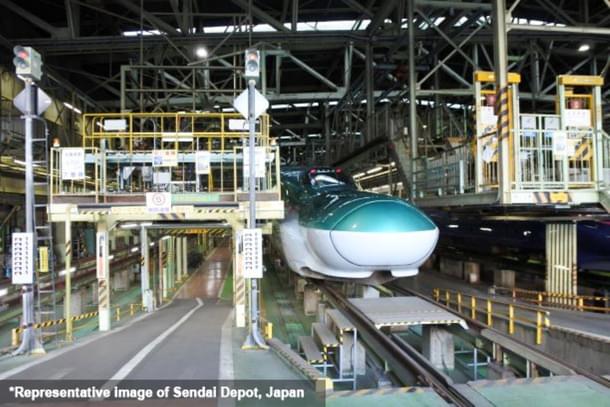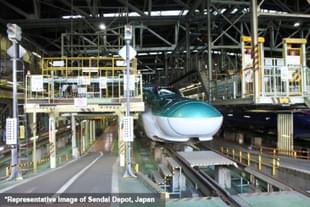News Brief
Bullet Train Design For Mumbai-Ahmedabad High-Speed Rail Corridor To Be Finalised Soon To Suit Indian Conditions
Arjun Brij
Dec 23, 2024, 12:33 PM | Updated 12:33 PM IST
Save & read from anywhere!
Bookmark stories for easy access on any device or the Swarajya app.


India and Japan are close to finalising the design of the bullet trains for the Mumbai-Ahmedabad High-Speed Rail (MAHSR) Corridor, marking a major milestone in the project.
The redesigned Japanese Shinkansen trains will be adapted to suit Indian conditions, with formal approval expected soon.
The modifications include enhanced luggage carrying capacity, the ability to operate in temperatures exceeding 50 degrees Celsius, and measures to address India’s dust concerns.
“The seating arrangement may also be reconfigured, with possibly fewer seats per coach than the original design,” an official said.
Over 50 per cent of the civil work for the MAHSR corridor has been completed across Gujarat, Maharashtra, and the Union Territory of Dadra and Nagar Haveli.
Rail welding on the viaducts in Gujarat commenced earlier this month. An official statement noted that rails for the project are being imported from Japan, with over 60 km already laid.
India is also working to indigenise bullet train production and develop signaling systems compatible with high-speed rolling stock. The Railway Board has tasked the Integral Coach Factory (ICF) with manufacturing bullet trains capable of speeds up to 280 kmph.
The ICF, in collaboration with BEML, will produce these trains at a cost of Rs 866.87 crore, with each coach priced at Rs 27.86 crore. The contract covers design, one-time development, non-recurring charges, and costs for jigs, fixtures, tooling, and testing facilities.
BEML plans to manufacture the trainsets at its Bengaluru rail coach complex, with delivery scheduled by the end of 2026.
These trainsets will feature fully air-conditioned chair car configurations, reclining and rotatable seats, provisions for passengers with restricted mobility, and onboard infotainment systems.
Globally, high-speed trains like France’s TGV and Japan’s Shinkansen operate at speeds exceeding 250 kmph. India’s bullet train initiative aims to bring similar capabilities to its rail infrastructure.
Arjun Brij is an Editorial Associate at Swarajya. He tweets at @arjun_brij





